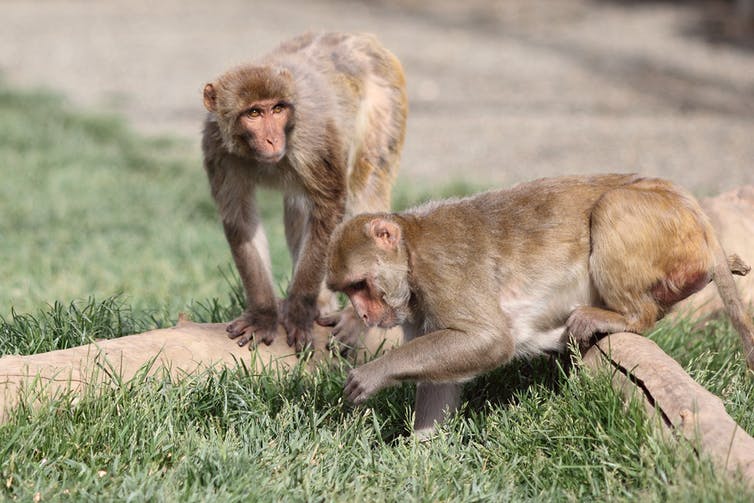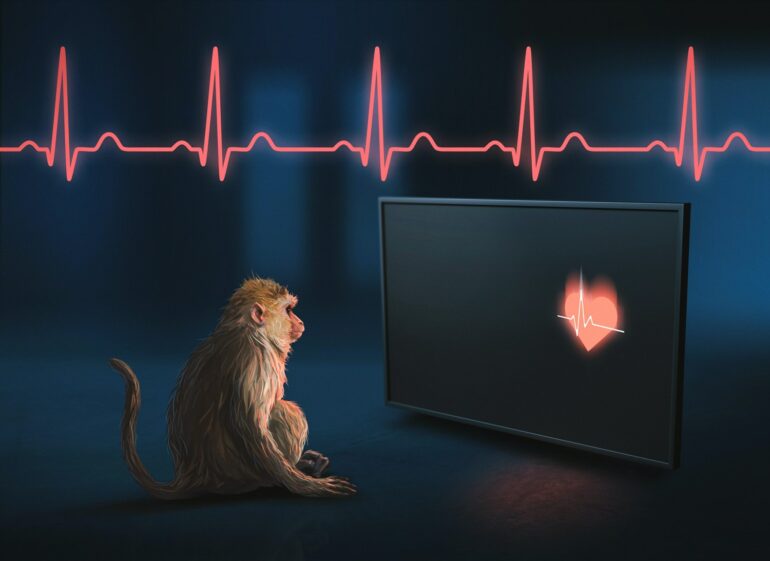The Research Brief is a short take about interesting academic work.
The big idea
Rhesus monkeys have a sense of when their own hearts are beating, according to new research we conducted.
Sensing one’s own physiological states – like your heartbeat, breathing or blushing cheeks – is called interoception. Some previous research has shown that animals can be trained to do tasks that demonstrate this ability. Decades ago, a team of scientists showed rhesus monkeys could be trained to increase and decrease their heart rates. But an open question has been whether monkeys have an unlearned ability to sense their bodily signals rather than being taught to do so.
Both human babies and monkeys look at things that are unexpected or novel for longer amounts of time than they look at things that they expect or are used to seeing. We used a task that relies on this behavior – originally developed to test whether human infants can sense their own heartbeats – to learn whether monkeys also have this ability.
Monkeys were shown videos of a bouncing cloud or star that was either in sync or out of sync with their own heartbeats. The moving red dot represents where the monkeys were looking. Joey Charbonneau.
We first got our monkeys to sit in chairs in front of a computer screen and hooked them up to electrocardiograms to monitor their heartbeats. Then we played videos of either a yellow or green cloud bouncing up and down accompanied by beeping sounds. Sometimes we would sync the bouncing and beeping to match the monkey’s heartbeat, and at other times they were out of sync.
We then used eye trackers to measure how long the monkeys looked at the images. If the monkeys had a sense of their own heartbeats, they would find the in-sync bouncing less interesting and novel than the out-of-sync bouncing and so would spend more time looking at the out-of-sync image.
We tested four monkeys and, just like human babies, they looked at the shapes that bounced and sounded out of sync with their heartbeats for significantly longer – nearly three-quarters of a second – than the in-sync images. Additionally, the extent to which our monkeys paid more attention to out-of-sync shapes than in-sync shapes was very close to the difference in human babies. These findings strongly suggest that monkeys have an innate sense of their own heartbeats.

In humans, the ability to sense one’s own physiological functions is tied to consciousness, memory and a number of mental health disorders. Showing this skill in monkeys opens up many research opportunities.
Kathy West/CNPRC, CC BY-ND
Why it matters
Heartbeat detection tests are the most commonly used to evaluate how aware of bodily signals people are.
In humans, this skill is thought to be central to emotional experiences, having a sense of self, memory, knowledge of one’s own cognition and even



